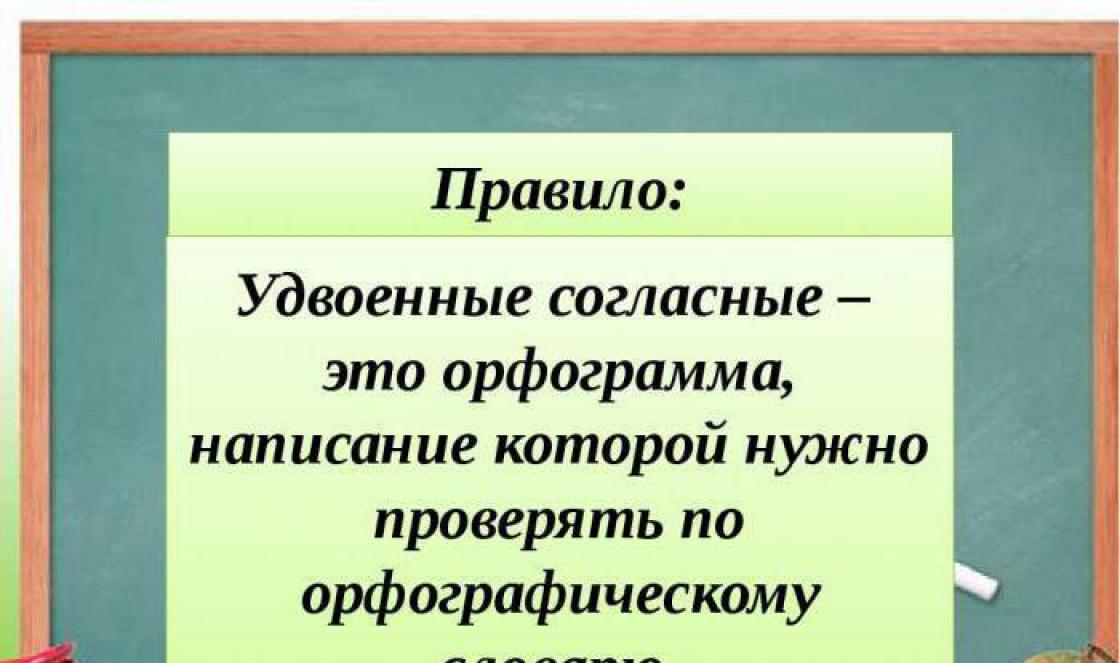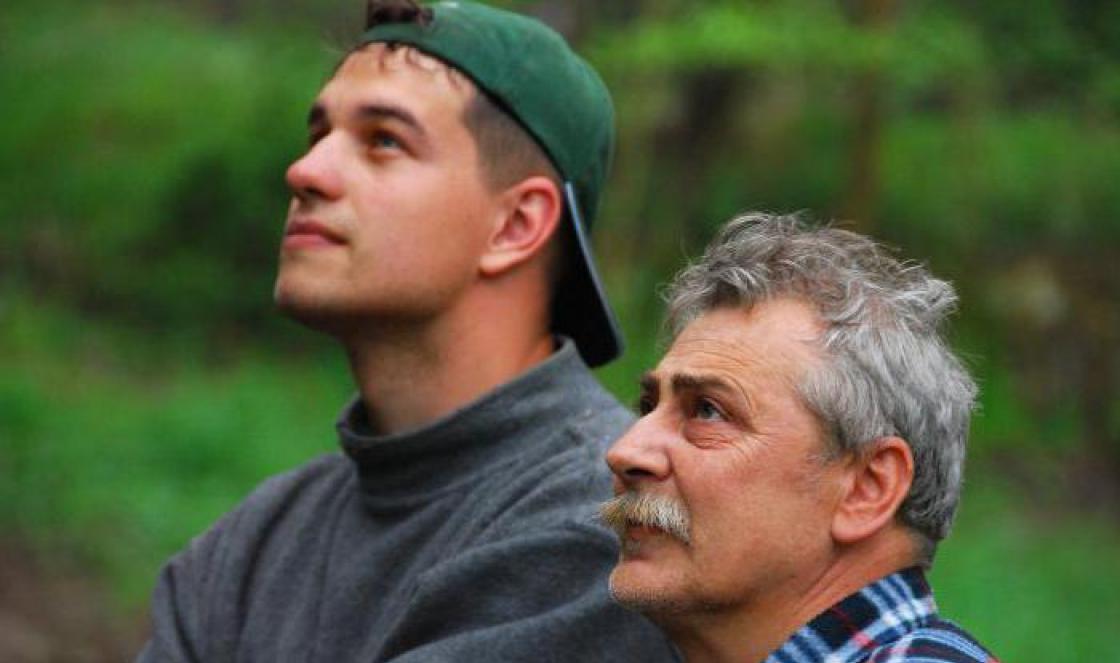Tyutchev, poems, biography and creative way which will be discussed below, is an extremely interesting person. It is not for nothing that he is considered one of the best Russian classics, among which he occupies at least a place of honor. He became famous not only as a poet, but also as a diplomat in the service of Russia, and also (albeit to a lesser extent) as a publicist and corresponding member of the St. Petersburg Academy of Sciences. Like many, his relationships with women were intricate, one might say, creative and did not fit into the framework of philistine morality. There were mistakes and tragic moments on the poet's life path.
F.I. Tyutchev, biography. A Brief History of Young Years
Fedor Tyutchev saw the light in family estate Ovstug of the Bryansk district on December 5, 1803. You could say he was a child prodigy. He knew Latin, was fond of it, and at the age of 13 he was translating the poems of Horace. At the age of fourteen he became a free student of the Verbal Department of Moscow University, and at 16 he became a member of the Student Society of Russian Literature Lovers. Having received a diploma in 1821, Tyutchev gets a good place - the work of an attaché (albeit freelance) in Bavaria, at the Russian diplomatic mission.
In Munich, he does not give details) meets Heine and Schelling, as well as Novalis. The latter subsequently had a very great influence on the poet's work. In 1826, a young Russian diplomat marries Countess Eleanor Peterson. Three daughters were born from this marriage. In 1937, the family suffers a shipwreck. To save his wife and daughters, Ivan Turgenev, who turned out to be a passenger on the same ship, helps Tyutchev. But the catastrophe fatally affected Peterson's health, and she died in 1838.

Three Muses
Although eyewitnesses say that Tyutchev turned gray overnight at the coffin of his wife, the very next year he enters into a new marriage - with the recently widowed Baroness Ernestine Pfeffel-Dernberg. There is evidence that he had a connection with her during the life of Eleanor. In addition to these two ladies, the poet dedicated many lyrical poems to a certain E. A. Denisyeva. Which of these three women did Tyutchev love the most, biography - Short story his life - is silent about this.
Return to Russia
On behalf of the Russian Foreign Ministry until 1844, Tyutchev was actively engaged in promoting an active image of Russia in the West. He writes his first journalistic works: "Letter to Mr. Dr. Kolb", "Note to the Tsar", "Russia and the Revolution" and others. In Russia, he took the place of senior censor at the Ministry of Foreign Affairs. In 1858 he rose to the rank of real state councilor.

Being a tough censor and an ardent champion of the Russian Empire, Tyutchev (biography short poet full of such oddities) nevertheless belonged to Belinsky's circle and was published in the Sovremennik magazine. In December 1872, the Privy Councilor felt a sharp deterioration in his health. Headaches began to haunt him, his left hand lost sensitivity, his eyesight weakened. On January 1, 1873, he had a stroke that half paralyzed the poet. On July 15 of the same year, Tyutchev died, and this happened in Tsarskoye Selo. The classic is buried at the Novodevichy cemetery.
Poet Tyutchev: biography and creativity
Researchers of Tyutchev's works and style believe that his path as a creator can be divided into three periods. Youthful poems (before 1820) are archaic in style. The second period (1820-40s) is odic poetry, in which the features of European romanticism are intertwined. After a 10-year break in writing poetry, the third, mature period (1850-70) begins. The "Denisiev cycle" of love lyrics is being created, political works are being written.
On November 23, 1803, a boy was born in the Orel province of the Bryansk district in the Ovstug estate. They named him Fedor. Fyodor's parents, Ivan Nikolaevich and Ekaterina Lvovna, came from ancient noble families.
Ekaterina Lvovna was closely related to the family of Leo Tolstoy. Ekaterina Lvovna was a very beautiful, subtle, poetic woman. It is believed that she passed on all these traits to her youngest son Fedor. In total, 6 children were born in the Tyutchev family. The last 3 children died in infancy.
Fedor Tyutchev received his primary education at home. His first mentor was Raich Semyon Yegorovich, a young, highly educated man. He wrote poetry and did translations. Studying with Fedor, the mentor inclined him to versification. By doing homework, he often arranged competitions - who would compose a quatrain faster. Already at the age of 13, Fedor was an excellent translator and became seriously interested in writing poetry. Thanks to
mentor, as well as his talent and perseverance, Fedor Tyutchev spoke and wrote fluently in several foreign languages. But what is interesting is that Tyutchev wrote all his poems only in Russian.
Tyutchev graduated from the Faculty of Literature of Moscow University with honors in 1821.
Knowledge of many foreign languages and excellent studies at the university help him enter the Collegium of Foreign Affairs as a diplomat. For almost a quarter of a century, Tyutchev will have to live abroad. He rarely came to Russia and suffered greatly from this. While working as a diplomat in Munich, Tyutchev would meet his greatest love, Eleanor Peterson. They will have three daughters. Eleanor's happiness was short-lived. She is dying. Tragedy ends his relationship with Elena Denisyeva. About this period of his life, he writes: "The executing god took everything from me ...".
Creativity Tyutchev
The creative heritage of Fyodor Tyutchev has a little over 400 poems. A notebook with Tyutchev's poems accidentally ends up with A. Pushkin. Pushkin is delighted, he publishes poetry in the Sovremennik magazine. Tyutchev becomes famous as a poet. All Tyutchev's work can be divided into 3 stages:
- morally - philosophical lyrics. In the poems of this period, Tyutchev skillfully combines the soul, mind, the infinity of human existence.
- Love lyrics. Tyutchev was a very amorous person, he dedicated poetry to all his lovers. Tyutchev's love lyrics reflect his mood. His sublime, sad, tragic poems belong to this period. The lyrics are very melodic and touch the soul.
- Poems about native nature. Tyutchev wrote poems about nature from his youth. He believed that there was nothing more beautiful than Russian nature. Most of all abroad, he suffered from the inability to immerse himself in Russian nature. With rapture and happiness he wrote about fields, copses, seasons. His poems about nature were included in the school curriculum for children.
At the end of his life, Tyutchev began to write poetry on political topics, but they did not resonate with readers and for the most part remained unclaimed poems by the general public.
Tyutchev and modernity
Poems from any stage of the poet's work find a lively response from readers. His famous lines: “Russia cannot be understood with the mind...”, “We cannot predict...”, “The executing god has taken everything from me...” is known to almost every literate person. In terms of popularity, his poetic work can be compared with the work of Pushkin. Subtle, lyrical, penetrating into the soul, Tyutchev's style transcends time and boundaries. His poems have been translated into many languages of the world.
In the summer of 1873, Fyodor Tyutchev died in Tsarskoye Selo. He was buried at the Novodevichy cemetery. Every year, on the birthday of the poet and on the anniversary of his death, admirers of his talent come to pay tribute to his work.
A very short biography of Tyutchev for children grade 4
Tyutchev had his favorite teacher-mentor Yegor Ranch, who helped him in everything and raised more parents. Already at the age of twelve, with the help of his teacher, Fedor Ivanovich wrote his first poems. At the age of fifteen, not needing his teacher, he began to study at the institute at the verbal faculty. After he graduated from the institute, he went to work abroad for almost 20 years. Where he worked as a diplomat in Italy and Germany.
All this time he was not engaged in literary activity. Upon returning to his homeland, he began working in the Foreign Affairs Committee. Pushkin saw his first poems in 1836 and helped to publish them in many magazines. After which he came out. The first assembly of Fedor appeared in 1854. Tyutchev has many famous poems such as: “Russia cannot be understood with the mind”, “winter does not last long”, “evening”, “free-flowing sand knee-deep”.
Tyutchev did not become a writer and worked in a different field, his poems are still taught by children at school.
Fedor Tyutchev died in July 1879 in the village of Tsarskoye. Never started a career in literature.
4th grade. Grade 6. Grade 3, Grade 10. for children
Biography by dates and interesting facts. The most important.
On our site you can download a message about Fedor Ivanovich Tyutchev or read its summary.
Download the full version of the message about F.I. TyutchevSummary of the message about Fedor Ivanovich Tyutchev
Biography
Fedor Ivanovich Tyutchev (5.12.1803 – 15.07.1873) was born into a noble family, in the Ovstug estate (Bryansk district, Oryol province). Tyutchev's childhood years were spent in Moscow. Home teachers led by a poet-translator Semyon Raich taught him Latin and ancient lyrics. The abilities of the future diplomat and poet are evidenced by the fact that at the age of 14 he was already a volunteer of the verbal department of Moscow University.
After graduating from the university, Tyutchev begins a diplomatic career (20 years working in Munich and 2 years in Turin). In 1839, he retired due to his unauthorized trip to Switzerland for marriage with Ernestine Dernberg. Tyutchev's first wife, Eleanor Petersen died in 1838. On public service Tyutchev returns in 1845 and becomes senior censor at the Ministry of Foreign Affairs. In 1850, F.I. Tyutchev met Elena Alexandrovna Denisieva, which became his last love, condemned by high society for the difference in position and age.
In 1858, Fedor Ivanovich became Chairman of the Foreign Censorship Committee and held this post for 15 years. For merits, Tyutchev receives a high rank in 1865 Privy Councilor. Interested in European politics, writes political articles, despite failing health. Severe headaches and loss of freedom of movement of the left hand at the end of 1872 were a symptom of an impending stroke, from which the poet died 8 months later in Tsarskoye Selo.
The main periods of creativity F.I. Tyutchev
Tyutchev began to write his own poems early: the first of them ( “To my dear papa!”, “I am omnipotent and weak at the same time ...”) date back to 1813-1816. The first publications are known only to a narrow circle of close people, because the poet was published very little. Peru Tyutchev owns about 400 poems (counting options and unfinished drafts), and his creative and life path can be divided into three periods:
- Children's and youth creativity in the spirit of poetry of the 18th century (1810 - 1820).
- The original work is a synthesis of Russian odic poetry of the 18th century and the traditions of European romanticism (mid-1820s-1840s). In 1836 in "Contemporary" A.S. Pushkin 16 and then 8 more poems by F.I. Tyutchev under the heading "Poems sent from Germany".
- After a 10-year period when Tyutchev almost did not write poetry, from the 1850s to the 1870s he creates many political poems and poems "in case". In 1854, the publication of his first book took place, in which there were old and new poems that made up the famous "Denisiev cycle" dedicated Elena Denisieva (“I knew the eyes, oh, these eyes! ..”, “Last love”, “Today, friend, fifteen years have passed ...” and etc.).
The first acquaintance with F.I. Tyutchev at school
With the study in the 6th grade of a brief biography and several poems of the poet (mostly landscapes), the comprehension of the lyrics and personality of F.I. Tyutchev. Poems "Leaves", "Reluctantly and timidly ..." allow you to feel the complex, transitional states of nature, embody the confusion of feelings in the soul of the poet. In a poem “The kite rose from the clearing ...” two images are contrasted: the freedom of flight of a free bird and the earthly - "in sweat and dust" - the hypostasis of man. The list of additional literature for independent reading in grade 6 includes 3 more poems: “Dream on the Sea”, “Spring”, “How cheerful the roar of summer storms ...”.
Fyodor Ivanovich Tyutchev is a nineteenth-century writer who left behind more than four hundred wonderful poems. This is a publicist and diplomat, a correspondent of the Academy of Sciences in St. Petersburg, who had an interesting fate, and in order to get to know Tyutchev better, we suggest studying his short for children.
Biography of Tyutchev briefly the most important
Studying briefly the biography of the writer by date, let's briefly dwell on each stage of his life, including childhood and adolescence, years of living abroad, as well as his legacy.
Childhood and youth
The life of the writer begins in 1803 in December with his birth. He was a calm and gifted child who was born into a noble family, where from birth great attention devoted to the education of the child. At first it was home education. The teacher was the poet and translator Raich, who instilled in Fedor a love for writing poetry. By the age of thirteen, the future writer knew Latin, science, understood ancient Roman poetry.
Literary creativity of Tyutchev
If speak about literary creativity writer, then already from his youthful years he writes his poems, but they are not successful, and only in 1836 did Tyutchev really make his debut as a poet. This happened thanks to Pushkin, who noticed the beginning poet and published several poems in his Sovremennik. Further, there will be more and more collections, even a collection of poems will be released, which the writer will dedicate to his mistress.
Life abroad and return to Russia
As mentioned above, after graduating from high school, Tyutchev works at the Collegium of Foreign Affairs and thus, as a diplomat, ends up in Munich. He lived abroad for 22 years. There he met his first love, a wife with whom they had three girls. While in Munich, the writer is interested in the German philosophy of the idealists. Performing the functions of a diplomat, he does not stop writing his works.
Then Tyutchev is transferred to Turin, where his wife eventually dies. Tyutchev, after her death, marries his mistress and, without the consent of the government, travels to Switzerland, thereby putting an end to the career of a diplomat. Later, he will return to Munich again, try to regain his position, but after a failure, he will return to Russia.
In Russia, he works in the Ministry of Foreign Affairs as a censor and continues to write. In the fifties, the writer mainly writes on political topics.
Since 1864, Tyutchev's black streak begins. The second wife dies, followed by their children, and then his mother. This was reflected in the poet's biography by the deterioration of his health, and then there was also a difficult period in his work, because the published collection did not become popular. All this did not affect the life of the writer in the best way, and in 1873 Tyutchev died in Tsarskoye Selo.
Poet's legacy
If we talk separately about the legacy of the poet, about his work and what exactly Fedor Ivanovich left behind, then these are more than 400 poems that were published in his collections. In his poems, he wrote on various topics. Here is the theme of nature, and the theme of love, and works for children that we study at school, as well as political themes.
Speaking of interesting facts from the life of Tyutchev, it is worth mentioning that, despite the legacy left behind, the poet never became a great writer.
In his list there are two poems dedicated to Pushkin.
Report on Fyodor Tyutchev, an eminent Russian poet of the nineteenth "golden" century of Russian poetry, can be long, because his fate is rich in events, feelings, reflections, creativity.
Childhood and youth of the future poet
Tyutchev was born into a noble family typical of that time, combining strict observance of Russian traditions with fashionable communication in French. It happened on the twenty-third of November 1803 in the estate of the village of Ovstug, located in the Oryol province. The parents of the future poet Ekaterina Tolstaya and Ivan Tyutchev were noble, intelligent and educated people. They wanted to see their children the same way.
In Moscow, where Fyodor spent his childhood and youth, Semyon Raich became his home teacher from the age of nine. The young talented philologist was an aspiring critic and poet, therefore he encouraged the poetic experiments of his pupil. At the age of twelve, Fyodor Tyutchev was already translating the works of Horace and composing poems. At fourteen he was elected a member of the Society of Lovers of Literature. A gifted boy from 1816 was a volunteer at Moscow University, in the fall of 1819 he was a student at the Faculty of Philology, and in 1821 he already graduated from it, having studied instead of three for two years.
Service in Munich
Having received his degree, after a few months he began to serve in the then prestigious College of Foreign Affairs, and in June 1822 he went to the German city of Munich. Fedor Ivanovich broke off contact with literature and devoted himself entirely to the diplomatic service. True, he did not stop writing poetry, but he did it for himself, without advertising them. He went on leave to his homeland only in 1825. Upon his return to duty in February 1826, he married Eleanor Peterson, becoming the guardian of her three children from a previous marriage. The Tyutchev family grew. 3 more daughters were born.
In Munich, fate brought him together with the poet Heine and the philosopher Schelling. Later, having made friends with the German romantic poet, Tyutchev was the first to translate his poetic works into native language. He also continued to write his lyrical works. And in the spring of 1836 he handed them over to St. Petersburg, where they were published in Sovremennik, a published magazine. By the way, great poet was delighted with the richness of poetic colors, the depth of thought, the strength and freshness of Tyutchev's language.
Service in Germany lasted almost fifteen years. In the late spring of 1837, the diplomat and poet received leave and went to St. Petersburg for three months.
Life in Turin
But after the vacation, Tyutchev was destined to go to Turin. There he was appointed chargé d'affaires of the Russian mission and first secretary. In this Italian city, a life tragedy awaited him, the death of his wife Eleanor. A year later, his marriage to Mrs. Dernberg was the end of his career as a diplomat. Tyutchev was not forgiven for his unauthorized departure to Switzerland to perform a wedding ceremony with Ernestina.
The announcement of the release of the poet from his post was not long in coming. For two years he tried to return to the service, but to no avail. Tyutchev was finally expelled from the number of officials of the Ministry. Without an official position, being retired, the poet lived in Munich for five years.
Back home
In 1843 the poet returned to his father's land. He lived first in Moscow, then in St. Petersburg with his parents. Reunited with his family in 1844. In the spring of the following year, he again began to serve in the Ministry of Foreign Affairs. A year later, he received the position of an official for special assignments, later - a senior censor. There was career growth, social life was getting better. These and subsequent years were marked by the writing of journalistic articles, which were published, and magnificent poems, which no one read.
Poetic popularity
Twenty-four lyrical works and an article entitled "Russian Minor Poets", written, were published in the Sovremennik magazine in early 1850. They made the general public remember Tyutchev the poet. Four years later, the first collection lyrical works was enthusiastically received by readers.
farewell feeling
The love of the young Elena Denisyeva and the elderly poet Fyodor Tyutchev lasted fourteen years. The fatal feeling gave birth to the beautiful lyrics of the so-called "Denisiev cycle". Their relationship was doomed to tragedy, because the poet had a family. Tyutchev wrote about this in the poem “Oh, how deadly we love”, talking about a painful, sinful feeling condemned by people.
bereavement
The last decade of the poet's life is filled with heavy irreparable losses. Elena Denisyeva died of consumption in 1964, followed by her son and daughter the following year, then her mother dies, and in 1870 her brother. The poet's life, fading away, loses its meaning. Since 1873, he begins to be seriously ill, and on the fifteenth of July of the same year, his life ends.
His ashes were buried in the city of Petra at the Novodevichy cemetery. And Tyutchev himself remained a favorite poet of many generations.
If this message was useful to you, I would be glad to see you





